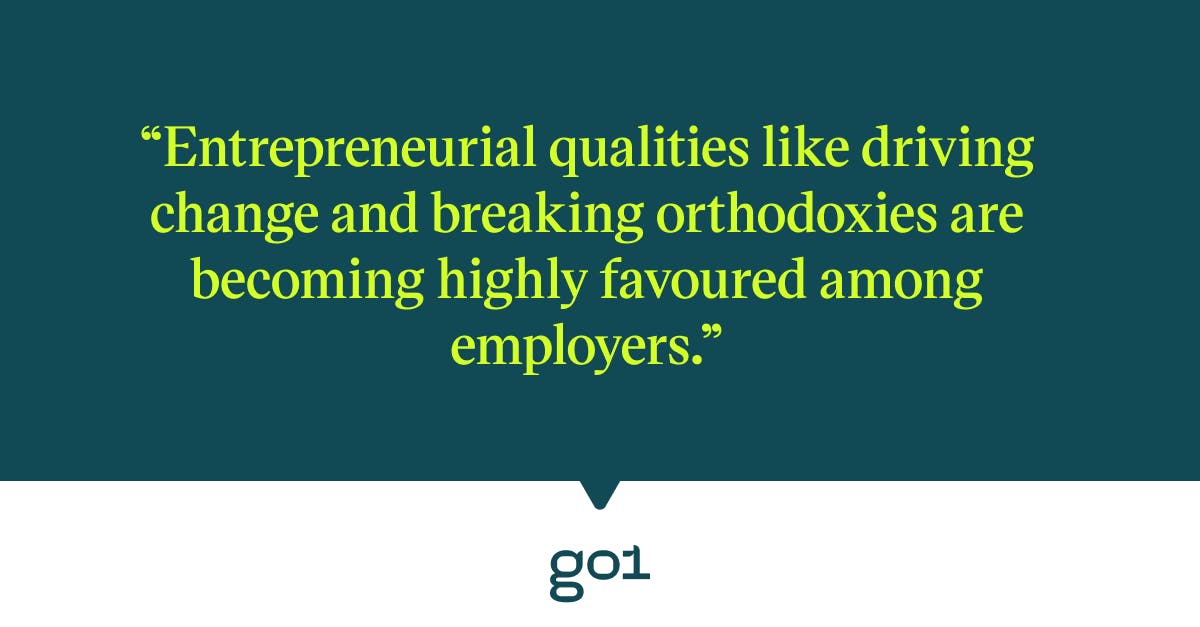
The importance of self-leadership in adult learning

It’s become an expected part of schooling for children to be taught how to develop life skills like work ethic, resilience and leadership. To be most effective, such skills should be nurtured throughout a child’s education. But what happens to those skills when the children who learnt them become adults and no longer have access to resources to maintain those skills?
A recent report, conducted by McKinsey and Company, explored the skills that citizens will require in the future world of work. Among a number of other discoveries, it found that while skills and attitudes relating to self-leadership may be particularly important to employment outcomes, they’re not often covered by adult learning programs.
So why is it that self-leadership is often not included in these programs?
Much like a computer, adults’ self-leadership skills require maintenance and updates. By ensuring that such skills are included in adult learning programs, we can help those adults to become the best versions of themselves; both in a personal and professional sense.

The report also found that the skills in the self-leadership category are strongly associated with job satisfaction - something that is becoming increasingly essential for employee retention in the wake of ‘The Great Resignation.’
Self-leadership can be divided into three primary categories:
- self-awareness and self-management
- entrepreneurship
- goals achievement
Let’s take a look at each of these self-leadership categories, how they can help today’s workers, and why they’re so important.
Self-awareness and self-management
Self-awareness and self-management are important first steps towards developing the skills workers need to become self-leaders.
One of the biggest components that affects the ability to grow in self-awareness and self-management is our ability to understand our own emotions and triggers.
When we are able to understand how we tick, it makes it easier for us to understand what motivates us as individuals. That way, when we’re working under pressure or are facing unexpected changes, we can move forward and continue to be engaged in the workplace.
When we know what motivates us, we can understand our own strengths and when we understand our strengths, it’s a natural progression for our self-confidence to grow as well.
Entrepreneurship
A lot of the time when we think about the word ‘entrepreneurship’, we think about it in a business sense: how can I make the most money? What can I do to accelerate my business? However, an entrepreneurial mindset can also be applied to workers as individuals.
In a work industry that is turning more digital by the day, entrepreneurial qualities like driving change and breaking orthodoxies are becoming highly favoured among employers. Especially now, businesses are continuously looking for ways to distinguish themselves from their competitors and be seen as ‘first adopters’ of new technology that’s tipped to become popular. By ensuring their workers are educated on the entrepreneurial mindset, businesses are paving the way for more innovation within them.

Another quality that is common amongst entrepreneurs is excitement and energy. There are countless examples of videos of seminars conducted by entrepreneurs that show them almost bouncing off the walls, absolutely chomping at the bit to tell audiences why their idea/product/service is going to change lives. People often leave those sorts of events feeling motivated, excited and ready to take on the next challenge. That’s because entrepreneurial energy and enthusiasm is contagious. Along a similar vein, when people are passionate about what they’re doing, they tend to work harder.
Imagine what would happen if we could bring more of that energy to our own workplaces? Think of the things we could achieve and the innovation we’d be able to bring forth in our respective industries!
Goals achievement
Unquestionably, the last 18 months have thrown a spanner in the works for workers in just about every industry. It’s meant that they’ve had to face a level of uncertainty that, for many, was difficult to cope with. However, skills relating to ‘goals achievement’ can help make the uncertainty a little less difficult.
For instance, when we, as workers, develop our ability to take ownership and be decisive, it allows us to maintain a level of control and certainty in a time when control and certainty may feel hard to come by.
Grit and persistence are other skills that workers have had to further establish since the start of the pandemic. While the growth of these skills was somewhat forced upon the workforce, the importance of them became clear almost immediately. Workers had to quickly expand on these skills or risk being left behind.
Therefore, the continuous development of these skills has the potential to prepare workers to face uncertainty in the workplace, whether that be as a result of another pandemic (fingers crossed that doesn’t happen!) or something different.
In taking steps to actively include self-leadership as part of their culture of learning, workplaces are equipping their employees with essential skills that not only benefit them in their current role but throughout the rest of their career journey.
To help you and your workplace reach their goals for self-leadership, we have composed a free playlist of courses within the Go1 platform called Emerging Leader - Managing Yourself.
The playlist includes learning content from Emerald Works, Pearls of Wisdom, iAM Learning and other Go1 partners. If you are already a Go1 customer, you can recreate this playlist in your own LMS or Go1 Platform. If you are not yet a customer, click on the link above to access the playlist. If you're interested in the Go1 Content Hub for your organisation's wellbeing and L&D goals, please get in touch with us today.




